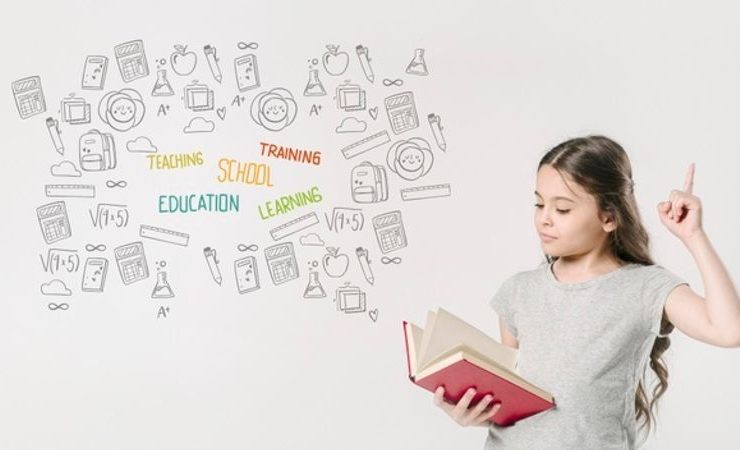
Reading is such a difficult process that almost every child has difficulty learning to read. The good thing is that, with sufficient education in the phonics components of reading, most of these youngsters will develop to become strong and passionate readers. Phonics is the component that has been shown to have a significant influence on reading performance.
- What is Phonics?
iSchooling phonics classes in India are a reading instruction approach in which children are taught letters based on their sounds rather than their names. There are around 44 distinct phonemes (phonics sounds) to learn. Some are single letters, such as /a/ in ‘apple,’ while others are made up of groups of letters, such as /sh/ in a ship.’ The sounds in phonics classes are taught in groups, beginning with the most common: /s/, /a/, /t/, /i/, /p/, and /n/. Decoding new words is taught to children by speaking each sound loudly.
- What is Jolly Phonics?
Jolly Phonics is a method of teaching communication skills that is systematic that is covered by the iSchooling phonics classes. It follows a child’s natural path from listening as an infant through speaking and finally reading and writing. Jolly Phonics classes is a programme that focuses on teaching letter sounds in a fun and engaging way.
- How are phonics and phenomic awareness different?
The realisation that words are made up of sounds is known as phonemic awareness. Phonics and phonemic awareness are not the same things. Phonics is concerned with the link between sounds and written symbols, whereas phonemic awareness is concerned with sounds in spoken words. As a result, phonics classes are concerned with the acquisition of sound-spelling correlations and is linked to print. The majority of phonemic awareness exercises, on the other hand, are entirely oral.
- Making sense of the text is the purpose of reading. So, what is the relationship between phonics and comprehension?
The importance of phonics classes in helping youngsters interpret text cannot be overstated. Online phonics classes, on the other hand, aid the youngster in mapping sounds to spelling. Children can use this capacity to decipher words. The growth and enhancement of word recognition are aided by decoding words. The reading work becomes simpler the more words a reader recognises. As a result, iSchooling phonics classes assist in the development of word recognition by giving students a valuable and practical approach to figuring out unknown words when reading.
Reading fluency improves when youngsters can recognise a large number of words quickly and properly. The ease with which youngsters can read material is referred to as reading fluency. Word recognition fluency and automaticity increase when more words become securely stored in a kid’s memory (that is, the youngster identifies more and more words on sight). It is vital for kids to have several opportunities to decipher words in the text in order to learn words by sight. The more a reader sees a word in a text, the more likely he or she is to recognise it by sight and avoid making a reading mistake.
Reading fluency from iSchooling phonics classes helps you understand what you’re reading. Children can concentrate their complete attention (mental power) on generating sense from text since that they are no longer grappling with decoding words through learning from phonics classes. Children will be able to dedicate more and more attention to producing sense from text, and less and less focus to decoding, as the vocabulary and idea demand in text rise. Reading will be sluggish and laborious if youngsters have to spend too much time deciphering words. This will cause problems with understanding.
